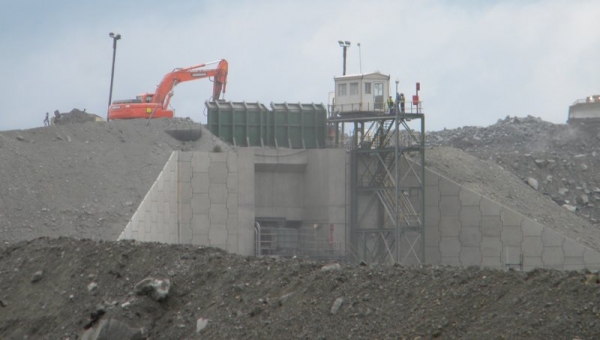Marikana Commission dodges compensation issue

What compensation should there be for the victims of the Marikana massacre? The answer given in Judge Ian Farlam’s final report released by President Zuma on Thursday night differs substantially from the recommendations given by the Marikana Commission’s evidence leaders.
There has been a wide range of reactions to the over 600 page report, after it cleared deputy president and former Lonmin director Cyril Ramaphosa of any wrongdoing but recommended an enquiry into National Police Commissioner Riah Phyiega’s fitness to hold office as well as an investigation into the “criminal liability” of the South African Police Service (SAPS).
The evidence leaders are the legal team that had a central role in the gathering and presentation of evidence at the commission. They did not represent any interested party. They consisted of Geoff Budlender, Matthew Chaskalson, Kameshni Pillay, Charles Wesley, Tantaswa Lupuwana and Matthews Mojapelo – some of the leading lawyers in the country.
Compensation
The issue of compensation is vital to the the dependants of those killed, as well as those injured on 16 August 2012, and in other related events.
The evidence leaders recommended to the Commission that “SAPS should pay compensation to the dependants of those who were killed in the police action, and to those who were injured.” They also recommended that the dependants of those killed by strikers should be paid compensation.
However, in fewer than three pages of the final report, the Commission comes to the conclusion that “it is not satisfied that its terms of reference are wide enough to cover the question as to whether a compensation scheme of the kind proposed should be implemented by the State”.
The report says that litigation has been started by many of the dependants of those killed by the police during the strike as well as those who were killed by strikers. Despite the Commission’s desire to resolve these issues without “further lengthy and expensive legal proceedings”, the report states that finding a solution that is “satisfactory and just” will not be easy.
A lawyer GroundUp spoke to on condition of anonymity expressed disappointment with the final report. He said, “[It’s] not so complicated. [The] state should compensate all. None could successfully claim double compensation. It’s a great pity to leave this hanging in the air, [and] undermines the value of the important work done by the Commission.”
The Legal Resources Centre represented the family of one of the killed miners, John Ledingoane. In a statement published on Friday, the organisation said that it was disappointed that its proposal for a state compensation scheme to “provide immediate compensation to the Ledingoane family and the other victims, without the need for further extensive litigation, was not accepted.”
The LRC said that in light of the Commission’s findings it would institute action to sue for damages for the unlawful killing of Mr Ledingoane.
The LRC further called on President Zuma and Minister of Police Nkosinathi Nhleko to “recognise that the Commission has made a finding that the SAPS is responsible for the deaths of Mr Ledingoane, and the other mineworkers killed on 16 August 2012, and to establish a compensation scheme.”
The original headline of this article was “Compensation: Farlam casts aside evidence leaders’ recommendations”.
Support independent journalism
Donate using Payfast

Don't miss out on the latest news
We respect your privacy, and promise we won't spam you.

This article is licensed under a Creative Commons Attribution-NoDerivatives 4.0 International License.
